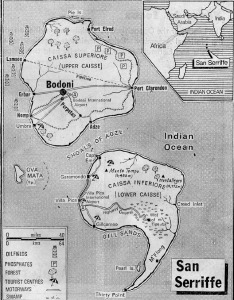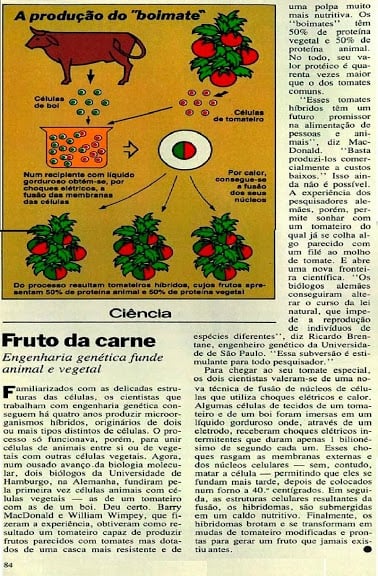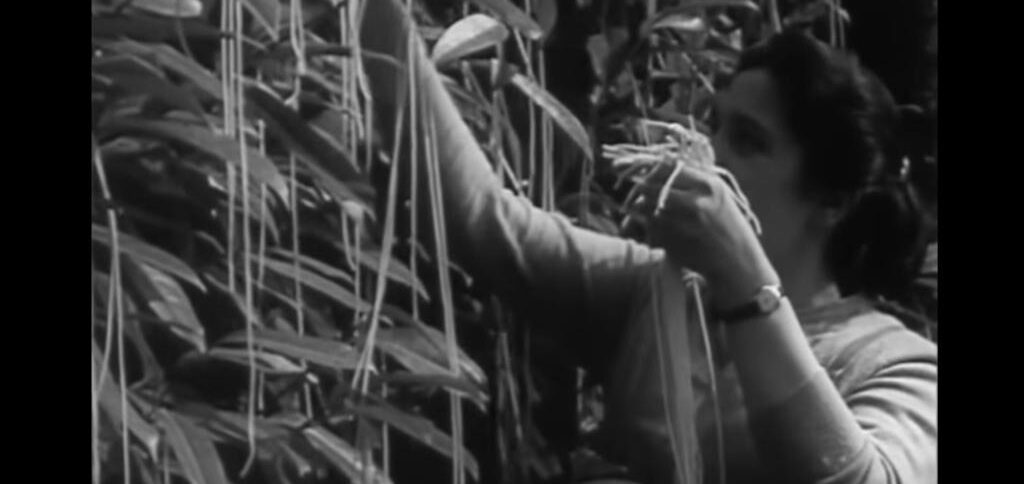The proposal of newspapers and radio stations, even in the middle of the last century, was to promote a “scavenger hunt” with readers and listeners: who would discover which news was false, on April 1st, April Fools’ Day? And it has become a tradition in some countries.
ADVERTISING
In an article published this Friday (31) on the Portuguese portal PUBLICO, a question is raised: “Do joke lies still have space in newspapers?” The text highlights that several newspapers in the country will maintain the practice this Saturday, well into the 21st century, alleging “lies to honor a tradition”. The newspaper cites competitors such as Correio da Manhã, A Bola, o Record and maybe the Diário de Notícias (all from Portugal).
Already PUBLIC, 24 hours e The Game They don’t join in the fun because “you shouldn’t even publish lies in the newspapers as a joke”, say the directors.
But to understand this strange tradition of foreign publications, we selected 5 fictional reports that were circulated between the 1960s and the 1990s and that got people talking!
ADVERTISING
1 – Nixon back after Watergate
April 1st in 1992/ National Public Radio (NPR) Talk of the Nation: the American public broadcaster revealed that Richard Nixon, president involved in the Wattergate scandal and who ended up resigning from office under pressure, would be running for president again.
The show also played audio clips of Nixon announcing his run, performed by famous impersonator and actor Rich Little. The story provoked immense engagement among angry listeners, who kept calling the newsroom. (Source: Insider)*
2 – Swiss spaghetti 'harvest'
April 1 em 1957/ BBC: In England, on Fool's Day, the news created by the BBC Panorama program told about the phenomenon of spaghetti trees in Switzerland. The unusual harvest was the result of the end of the dreaded weevil, a type of pest that affects spaghetti grains, and therefore those who cultivated this “specimen” (Swiss people in a region close to Italy) had an incredible harvest of the pasta.
ADVERTISING
The report showed Swiss peasants “harvesting” the delicacy. All lies, of course. After all, pasta doesn't grow on trees! (Source: BBC/Youtube)
3 – The San Serriffe Islands

April 1 in 1977/ The Guardian: the British newspaper invented an archipelago on April Fool's Day and dedicated a special seven-page supplement to the story: a small republic that would be formed by semicolon-shaped islands located in the Indian Ocean.
The articles detailed the geography and even cultural highlights of the fictional new nation, with names Upper Caisse and Lower Caisse, a pun on uppercase and lowercase, which mean uppercase and lowercase letters.
ADVERTISING
The success of fake news was so great that it inspired several British tabloids to invent and publish stories on April 1st in the following decades and to this day.
(Source: MediaTalks)
4 – BoiMate

April 1, 1983/ New Scientist: the false news published by the English magazine spoke of the combination of the ox gene and the tomato gene. The publication of scientific discoveries usually plays with “wonderful” facts and publishes them as a joke on April 1st.
The magazine gave some clues to its readers – mostly specialists, academics and researchers – that it was all just a fantasy: biologists Barry McDonald and William Wimpey had these names to remember the international food chains McDonald's and Wimpy'sea University of Hamburg, birthplace of the “discovery”, was a satire on the sandwich loved by so many around the world. The fusion of plant and animal cells excited the science editors of Veja magazine, at the time, who ended up publishing the “prank” and naming the experiment “Boimate”. (Source: Humor in Science)
ADVERTISING
4 – Pelé becomes coach of the Chilean national team
December 28, 1987/ Day of the Innocents (April Fools' Day in Chile): Not even the King of Football, Pelé, was spared from news invented on April Fools' Day. The newspaper “Fortin Mapocho” had on its front page the headline “Pelé will be the coach of the Chilean national team in the 1990 World Cup qualifiers”. The news was soon published by another newspaper, “El Diário”, which brought even more details about the king's supposed three-year contract with the team. But it was all a lie, to catch “innocent” readers. (Source: The Globe)
Read also
* The text of this article was partially generated by artificial intelligence tools, state-of-the-art language models that assist in the preparation, review, translation and summarization of texts. Text entries were created by the Curto News and responses from AI tools were used to improve the final content.
It is important to highlight that AI tools are just tools, and the final responsibility for the published content lies with the Curto News. By using these tools responsibly and ethically, our objective is to expand communication possibilities and democratize access to quality information. 🤖




